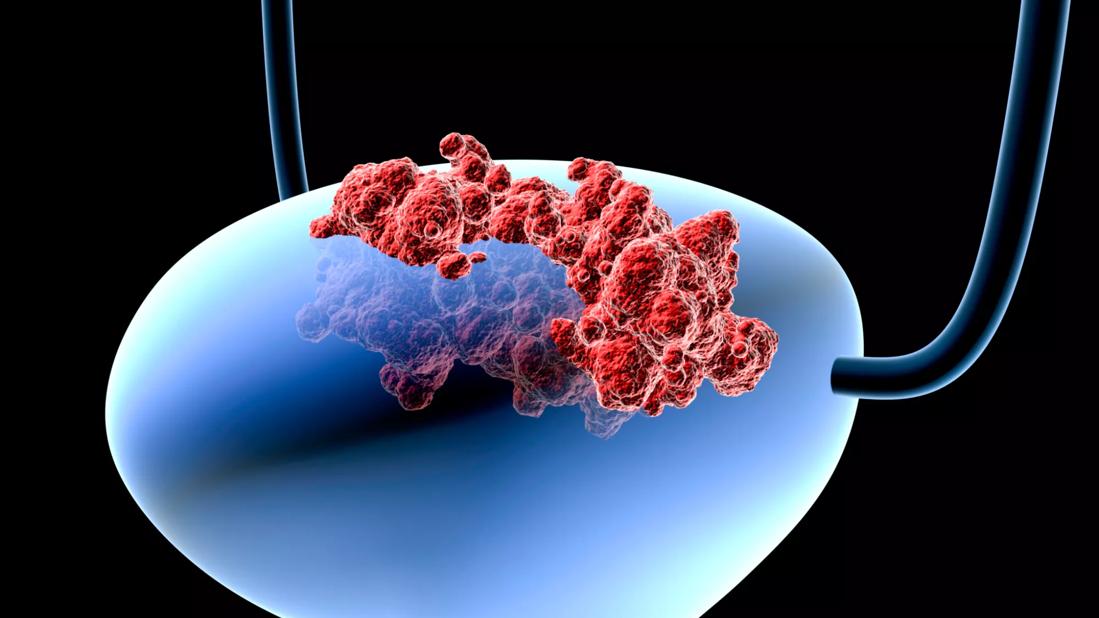Advertisement
Take the right precautions, get involved

With age come wisdom, experience and, unfortunately, a higher risk of bladder cancer.
Advertisement
Cleveland Clinic is a non-profit academic medical center. Advertising on our site helps support our mission. We do not endorse non-Cleveland Clinic products or services. Policy
Certainly, bladder cancer can occur at any age, but it’s more common in older men and much less frequently an issue in younger men and women.
Time gives you more chances to become exposed to harmful chemicals that get processed through your system. These chemicals collect in urine in the bladder before leaving the body.
“Elderly age is a significant risk factor for cancer in general. Repeated exposures to risk factors, including smoking, may result in an accumulation of genetic changes that can contribute to bladder cancer development,” says oncologist Petros Grivas, MD, PhD.
In fact, about 90% of those with bladder cancer are older than age 55. The average age of diagnosis is 73 years.
“A man has about a 1 in 26 chance of developing bladder cancer during his lifetime, while a woman’s risk is about 1 in 90,” says Dr. Grivas.
Men may develop bladder cancer more frequently than women because more men smoke tobacco and more may choose careers that involve incidental or chronic exposure to dangerous fumes and compounds.
“Certain professions, such as firefighting, machining and truck driving may increase risk because people in these professions have more exposure to toxins and chemicals; smoking can further increase this risk,” says Dr. Grivas.
Understanding what can increase your risk of developing bladder cancer as you age can empower you to take preventive steps.
Smoking tobacco is an important bladder cancer risk factor, as it is for numerous other cancers and diseases.
Dr. Grivas lists these additional risk factors:
While you don’t have any control over some of your bladder cancer risk factors, you can take steps in some areas to reduce risk:
Don’t smoke. This means that cancer-causing chemicals contained in smoke won’t have a chance to collect in your bladder. If you currently smoke, stop. Talk to your doctor about smoking cessation programs and support.
Advertisement
Take care with chemicals. If you work with or around chemicals, follow all safety rules to avoid exposure.
Drink water, stay properly hydrated. Drinking water may dilute harmful substances in your urine and flush them out of your bladder faster. Experts haven’t found conclusive evidence showing drinking water reduces bladder cancer risk, but it may help, says Dr. Grivas.
Eat a well-balanced diet. Eat a diverse variety of fruits and vegetables, nuts and fish rich in omega-3 fatty acids, as well as lean protein. Also, reduce fat and red meat.
Report any symptoms. You have the best chance of surviving when bladder cancer is in its earliest stages (survival rates can exceed 80%). But if it is diagnosed late, the survival may be less than 25%.
Although there is no clear evidence that screening people who don’t have symptoms can reduce bladder cancer deaths, it’s vital to establish and maintain good relationship with your primary care doctor and tell him or her immediately about any urination issues (like blood in urine or any other symptoms).
Don’t forget to discuss any family history of cancer as well, so your doctor fully understands your risk level.
There have been no major advances in the medical treatment of bladder cancer for almost 30 years.
“A higher level of awareness and community involvement may contribute to more effective research with new meaningful treatments and life-saving drugs,” Dr. Grivas says.
There are several clinical trials testing new therapies, many of which are available at Cleveland Clinic.
Advertisement
Learn more about our editorial process.
Advertisement

Puffing on cigarettes is the leading cause of bladder cancer

HER2-low is less aggressive than HER2-positive and HER2-negative, but the new designation allows for targeted therapies that may be helpful

Taking care of yourself extends beyond symptom management and includes things like passion projects and meaningful moments

Support groups, financial assistance and survivorship programs are all readily available

It depends on factors like the stage of the cancer, your age and other risks

Receiving this diagnosis can be scary, but there are ways to manage symptoms and reduce stress

Eating well can help support your immune system and maintain strength

You don’t have to cope in silence with issues like urinary incontinence and sexual dysfunction

Focus on your body’s metabolic set point by eating healthy foods, making exercise a part of your routine and reducing stress

PFAS chemicals may make life easier — but they aren’t always so easy on the human body

While there’s little risk in trying this hair care treatment, there isn’t much science to back up the claims